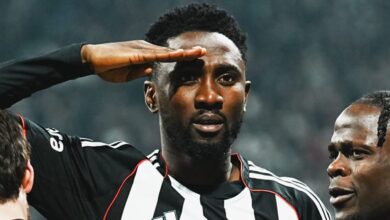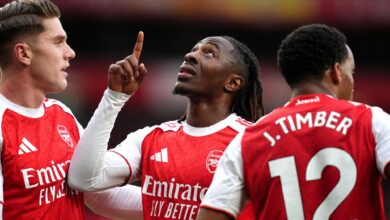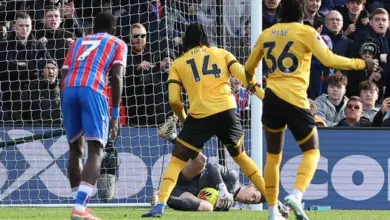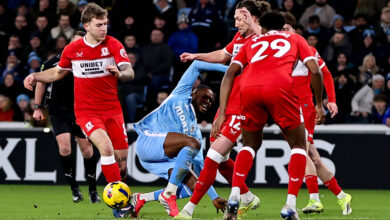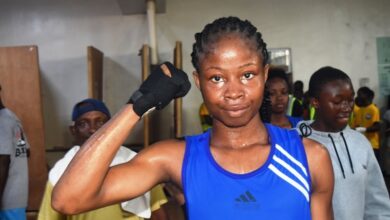King Kanu Nwankwo: Celebrating Nigeria’s 1996 Olympic games hero at 48
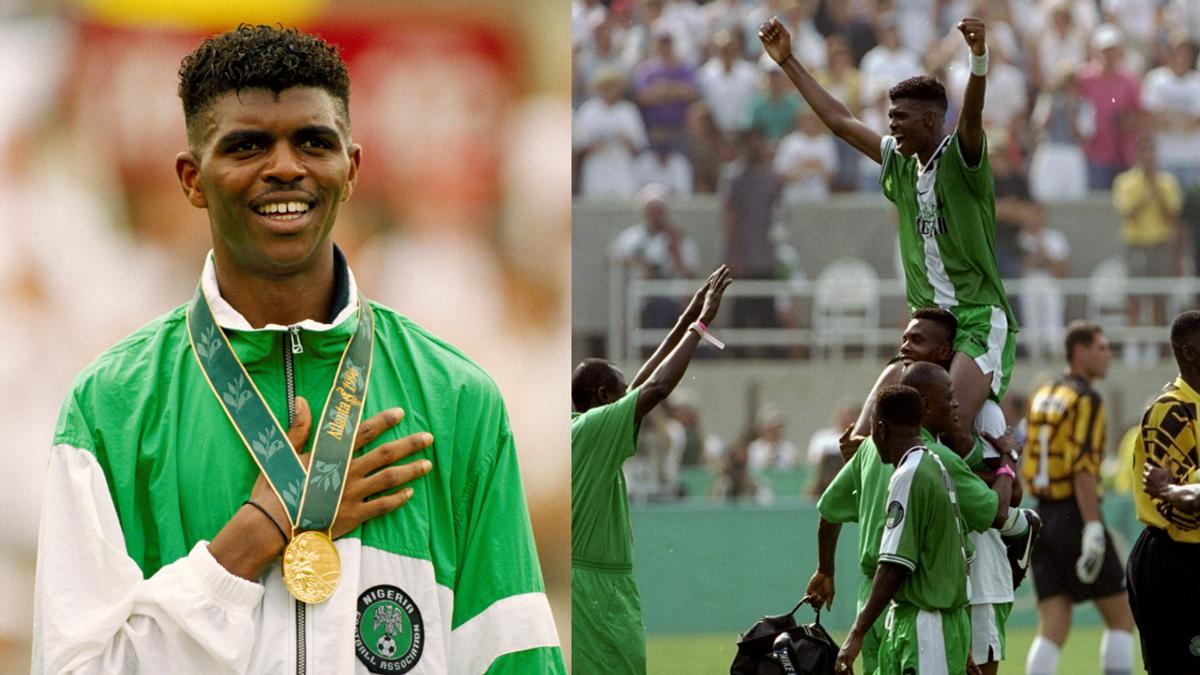
Nigerian football legend, Nwankwo Kanu is celebrating his 48th birthday today, reflecting on a career filled with remarkable achievements.
One of the standout moments in Kanu’s illustrious career came during the 1996 Atlanta Olympics, where he played a key role in Nigeria’s historic gold medal win.
At just 20 years old, Kanu was instrumental in leading the Nigeria U-23 team, often called the Dream Eagles, to Olympic glory.
The team’s success was particularly memorable for their dramatic performance in the semi-final against Brazil. Nigeria was trailing 3-1, but Kanu’s brilliance turned the game around. He scored a dramatic late equalizer and then netted the winning ‘Golden Goal’ in extra time, securing a 4-3 victory.
Kanu’s contributions during the tournament didn’t just win games; they left a lasting impact on the world stage. His audacious goal against Brazil, where he flicked the ball over defenders and the goalkeeper with an impressive display of skill, is still celebrated as one of the greatest goals in Olympic history.
The victory at the Atlanta Games was more than just a sports achievement for Nigeria. At a time when the country was facing political turmoil and international isolation, the Olympic triumph provided a moment of unity and joy for Nigerians.
Kanu’s performance and the team’s success brought pride and a sense of national pride, showing the world the strength and spirit of Nigerian football.
As Kanu Nwankwo celebrates his 48th birthday today, it’s a perfect time to reflect on the impact of his incredible performance in 1996 and how it made Nigeria proud on the global stage.
READ MORE: Paris Olympics: Super Falcons eliminated after 3-1 loss to Japan
NIGERIA’S ATLANTA 1996 STORY
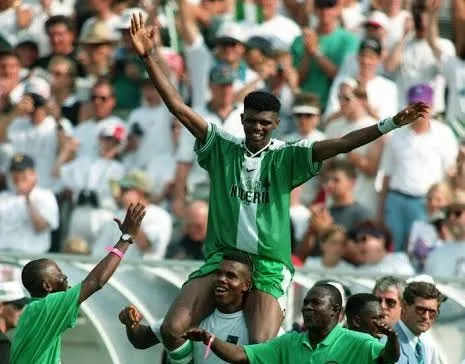
Nigeria’s road to Olympic gold in 1996 was fraught with challenges, but the Dream Team’s determination and resilience made their victory a momentous achievement.
In the qualification matches against Egypt, Nigeria showed their tenacity by winning 3-2 in the first leg and securing a 1-1 draw in Cairo. Despite this success, their preparation for the Games was marred by financial struggles and internal conflicts with the Nigeria Football Federation (NFF).
“We had a shortage of money to rent buses from the FA, so Victor Ikpeba and I had to use our own credit cards to rent three 12-seater mini-vans for the team,” Oliseh recalled in his book, Audacity to Refuse. His account was supported by many teammates, who affirmed the severe off-field difficulties they faced while working towards their gold medal triumph in Atlanta.
Undeterred, the Dream Team pressed on, driven by their collective resolve to make their nation proud. They were placed in a tough group at the Games, alongside Hungary, Japan, and Brazil.
Despite their past Olympic struggles, Nigeria started strong with a 1-0 win over Hungary, thanks to a goal from U-17 World Cup winner Nwankwo Kanu. In their second match, Nigeria secured a dramatic 2-0 victory against Japan with late goals from Tijani Babangida and Jay-Jay Okocha. Though they lost 1-0 to Brazil, their earlier victories were enough to advance them to the knockout stages.
The quarterfinals saw Nigeria overcome Mexico 2-0, setting up a dramatic semifinal against Brazil, the tournament favorites.
Despite a 1-0 loss to Brazil in the group stage, Nigeria was undeterred. In a thrilling match, Brazil took an early lead, but Nigeria responded with remarkable resilience.
The match saw Brazil go 3-1 up by halftime, only for Kanu to score a crucial equalizer with a composed chip and shot in added time.
Kanu’s sensational ‘Golden Goal’ in extra time then secured Nigeria’s place in the final, leaving the football world in awe.
In the gold medal match, Nigeria faced another formidable South American team, Argentina, featuring stars like Hernan Crespo, Claudio Lopez, and Ariel Ortega.
The final was a fast-paced affair, with Argentina taking the lead in the third minute through Lopez, and Celestine Babayaro equalizing for Nigeria. Babayaro’s celebration became iconic among Nigerian fans.
Nigeria managed to draw level again with Daniel Amokachi’s skillful play following an Argentine penalty. In the final moments, Emmanuel Amunike delivered the decisive blow, securing Nigeria’s gold medal.
While Kanu was the standout star of the 1996 Olympic team, the contributions of Uche Okechukwu and Daniel Amokachi were also crucial to the team’s success.
The triumph brought Nigerians together, as noted by Garba Lawal. “When I came back from the Olympics with Tijani Babangida, Babayaro, and Daniel Amokachi, we realized that people were staying up to watch us. Both men and women were not sleeping just to see our games. After each match, they celebrated at odd hours. That was the turning point,” Lawal recalled.
Even after 28 years, the historic achievement is remembered with pride, though it remains unmatched. The difficulty in qualifying for Olympic football events today suggests that this success was a rare and remarkable achievement, highlighting the challenges that continue to affect Nigerian football.


